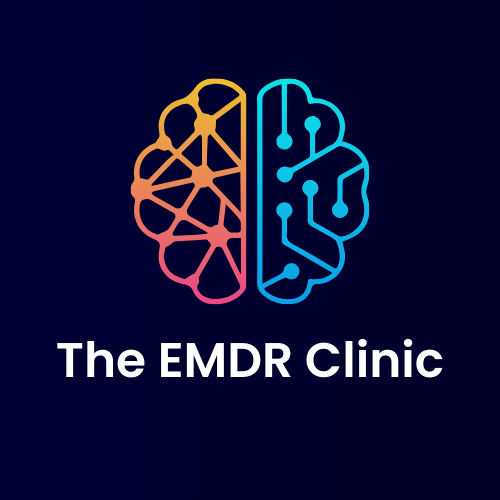
EMDR Intensives
Learn about Intensive Therapy
-
Intensive therapy has been around since theoretical models of psychotherapy were developed. In Psychoanalysis, the client attends sessions 5 days a week, in Transactional Analysis they hold ‘Group Marathons’ which is group therapy over an entire weekend, in the Person-Centred space there are ‘Encounter or Community Groups’ and in Gestalt they have ‘Personal Development Groups’. All are intensives, meaning consecutive hours or days of therapeutic interventions.
-
More recently, studies show that intensive therapy for PTSD is equally affective as regular sessions. Influenced by the work of Ad De Jongh, an EMDR researcher in the Netherlands.
Yet the benefits are it can work around your regular week, can be done as a one-off piece of work and you’re fully immersed in the process.
-
They’re both trauma-focussed treatments, that can be facilitated in an intensive format. Other applications are phobias, performance anxiety and other negative self-beliefs.
When working intensively, both EMDR and psychotherapy will be drawn upon. This means, that whilst we’ll check suitability for EMDR there may be instances where intensive therapy needs to happen either alongside or instead of EMDR.
-
In the same way that weekly therapy offers insight, shifts in awareness and challenges to negative beliefs, intensive therapy/EMDR does too. Just it’s condensed into a smaller timeframe making it convenient to schedule alongside life!
Intensives take place in my office: 30 Grand Parade, BN2 9QA or online (globally, excluding the US and some parts of Europe)
-
It condenses months of traditional therapy into a weekend. By being fully immersed in the therapeutic process, without interruption, means intensive therapy and Intensive EMDR removes the stress of juggling your diary and life commitments. With a reduction of distractions from life, we can dive deep into the therapeutic process.
It’s convenient and focussed. Intensives can also work alongside your existing therapy.
Trauma-informed approach that includes brain, mind and body
Aim to reduce presenting symptoms / blocking beliefs
Uses bi-lateral stimulation to facilitate the process. That is, moving the focus from left to right, using visual, audio or tactile stimulation
Treatment plans are collaborative and mapped out
EMDR can offer a shorter duration compared to traditional therapy (depending on symptoms, personal history)
EMDR stands for Eye Movement Desensitization and Reprocessing and is an 8 phased protocol - meaning it has specific parts to the process. It’s a trauma-focussed therapy and forms part of the WHO and NICE guidelines for PTSD and is now widely used in the NHS.
EMDR holds the lens that when traumatic events happen our brain doesn’t file them away where they’re supposed to. It can’t, as you’re busy surviving. And then those files act ‘as if’ they’re happening now and can interrupt our sense of being present (and safe). We might call these ‘triggers and symptoms’. Yet they’re ways in which your brain, mind and body have creatively adjusted to the world to ensure survival. EMDR’s role is to move this file into a more suitable filing cabinet - we don’t eradicate the memory! It’s more like it gets indexed so we know where it is. Or another analogy is the neural pathway to the filing cabinet has been blocked, and we’re looking to unblock it.
With intensives, we’re looking to complete as many of the 8 phases of EMDR as possible (unless we move to intensive therapy)
The 8 Phases of EMDR
Phase 1 - History Taking
To build a clear picture of your life history, key events and begin to identify your therapy goals (or targets)
Phase 2 - Preparation
Where we build our toolkit of resources to support you during Phases 4-6
Phase 3 - Assessment
Identifying the targets/focus for the work we undertake together and ensuring we have everything we need in order to begin processing.
Phase 4 - Desensitisation
This is the processing stage, whereby we’ll use bi-lateral stimulation which could be eye movements, sound via headphones or ‘pebbles’ which are handheld buzzers. It is within this phase that you’ll start to work with the traumatic memory or negative cognition.
Phase 6 - Body scan
Not the kind you might see on Star Trek, but it’s where we check-in with information that might still be stored in the body. Remember, EMDR encompasses the WHOLE of a person and the body keeps the score so we want it to tell us what the score is.
Phase 5 - Installation
Looking at what you’d prefer to believe about yourself NOW
Phase 7 - Closure
Simply a closing down of the session and the work completed
Phase 8 - Re-evaluation
Whereby I check-in with you at the beginning of the next session to see if you’ve noticed any shifts in dreams, memories, felt senses or behaviours.
What’s included in an Intensive Weekend?
PREPARATION FOR INTENSIVE
2 x 90 minute History taking & Assessment sessions
These are to understand your needs, goals for therapy and assess suitability. Occasionally, further assessment sessions may be required but this will be discussed in your first assessment.
1 x 2 - 5 hours Completing forms & resourcing information
These are done outside of clinical contact sessions, in your own time. You get out of therapy what you put into it and these form an important part of the preparation phase
INTENSIVES WEEKEND(s)
2 x 3 hour EMDR Focussed sessions
2 x 90 minute Psychotherapy sessions
POST INTENSIVE
1 x 1 hour Follow Up session (if required)
Option 1 - One Intensive Weekend
This option has one intensive weekend, where sessions happen across a Saturday and Sunday.
History taking and Assessment sessions are scheduled 1 week apart, and at least 2 weeks before the planned intensive days
This encompasses Phase 1, 2 & 3 of the EMDR Protocol
Intensives Weekend (both days), outline:
09.00 - Arrival and orientation to the day
09.30 - EMDR Focus (90 minutes)
11.00 - Break
11.15- Psychotherapy Focus (60 minutes)
12.15 - Break
13.00 - EMDR Focus (90 minutes)
14.30 - Break
14.45 - Psychotherapy Focus (30 minutes)
15.15 - Close session
The aim is to complete Phases 4-7 of the EMDR protocol yet this isn’t guaranteed due to the nature of the work
Follow Up session (60 minutes) minimum 1 week post-intensive, if required
Option 2 - Four half day Intensive Weekends
This option splits the intensives into 4 half days across two consecutive weekends. Half day on Saturday and one on Sunday, and then a week later, further half days on Saturday and Sunday.
History taking and Assessment sessions are scheduled 1 week apart, and at least 2 weeks before the planned intensive days
This encompasses Phase 1, 2 & 3 of the EMDR Protocol
Intensives Weekends (4 half days), outline:
09.00 - Arrival and orientation to the day
09.30 - EMDR Focus (90 minutes)
11.00 - Break
11.15- Psychotherapy Focus (60 minutes)
12.15 - Close session
The aim is to complete Phases 4-7 of the EMDR protocol yet this isn’t guaranteed due to the nature of the work
Follow Up session (60 minutes) minimum 1 week post-intensive, if required
Costs for Intensive Therapy
*costs are estimated as additional assessments may be necessary or follow ups - in some circumstances, but this will always be discussed beforehand
Please note: The first history taking session is invoiced in advance of the session and due no later than 72 hours before the appointment.
A minimum of 50% (£750) of the intensives balance is due 2 weeks before the scheduled intensive weekend and any other outstanding amount (£750) due 1 week prior to the scheduled intensive. All missed or cancelled intensives incur the fee.
Full details are sent after your initial zoom consultation (no fee).
FAQ’s
Can you ‘fix me’ by doing an Intensives weekend?
I get asked this a lot by clients. Firstly, I don’t consider you to be broken. You’re someone who has had to creatively adjust in order to survive. So can we ‘fix’ all symptoms and triggers in a weekend? There is no guarantee, as us humans are complex! Yet we’ll aim to focus on 1 to 3 targets (trauma memories, triggers & symptoms) to work on over the weekend(s). so that a particular trauma memory holds less emotional potency.
I already have a counsellor/therapist, can I still do an EMDR Intensive?
EMDR can work as an adjunct therapy - I’d ask your current therapist if they’re OK with this, as you may take insight and your experience to explore with them.
Is this a retreat?
No, this isn’t a retreat. I know some practitioners do offer them but I don’t. My stance is we’re meeting to do ‘the work’ and that means confronting the trauma, not ‘retreating’. However, I will offer suggestions for self-care based on what you tell me about yourself so that we begin to build a scaffold of support to help you through the process.
I don’t live in Brighton, can I still book in?
Yes! We can discuss in our free initial consultation but you could travel down the weekend (there’s lots of hotels and airbnb’s near to my office) or we could work online.
What happens if EMDR isn’t indicated for me?
During the history taking and assessment phase, we’ll discuss goals, life situations, personal history and we’ll also check that EMDR is suitable for you. This isn’t a test. Sometimes it’s a case of ‘not yet’ as you may have other life events that need attending to first (such as a job or living stability, a wedding etc). This will all be explored before committing to the Intensive weekend(s).
If you’re interested, or even curious, about whether an intensives weekend might be a good fit for you then let’s book an initial consultation (absolutely free of charge) in order to understand what brings you to EMDR/Intensive therapy now - and what you’d like to get from therapy!
Our initial consultation takes place via Zoom and will last approximately 20 minutes. It acts as an opportunity for us to meet each other and to ask any questions you may have.



